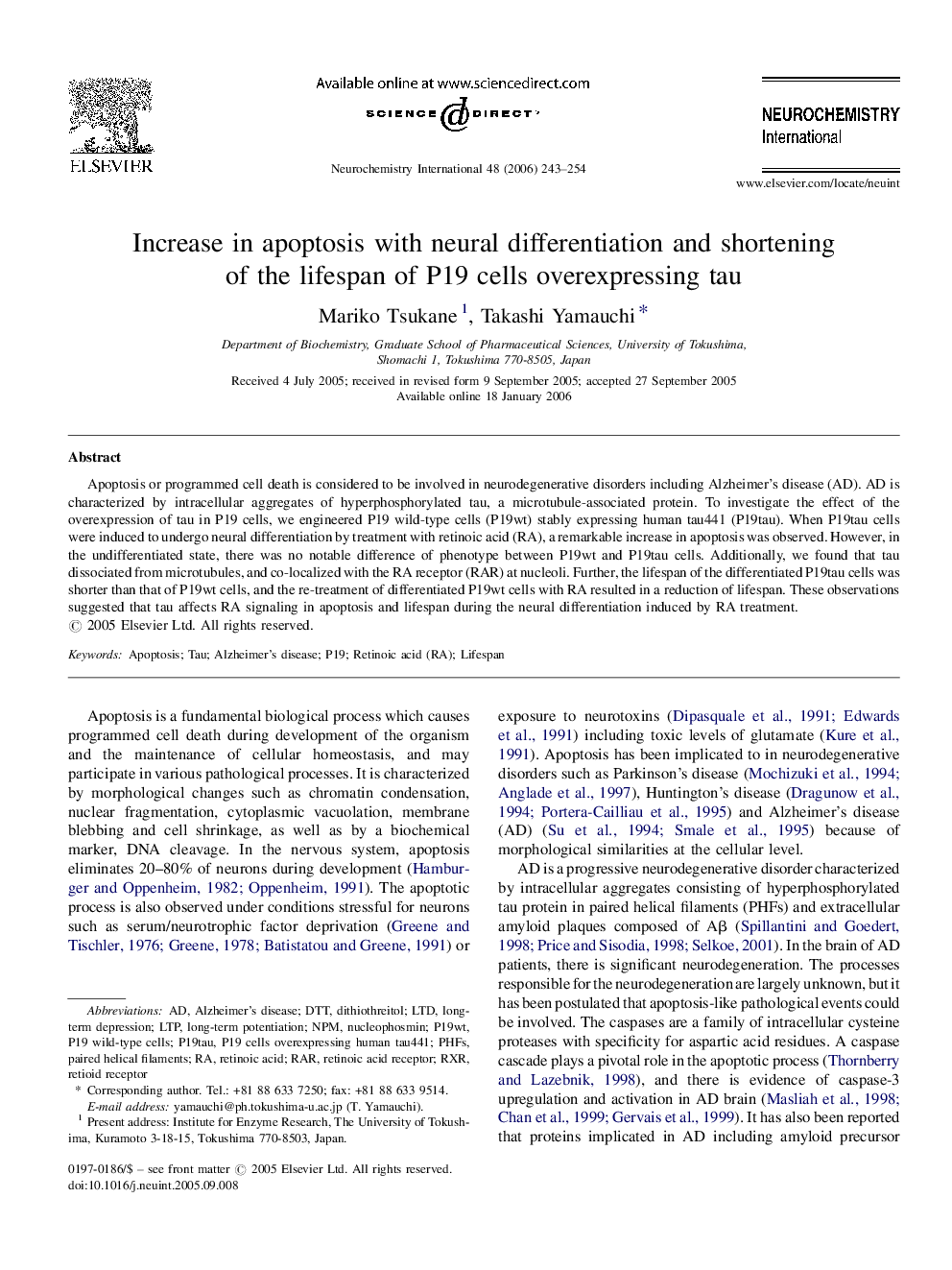| Article ID | Journal | Published Year | Pages | File Type |
|---|---|---|---|---|
| 2202088 | Neurochemistry International | 2006 | 12 Pages |
Apoptosis or programmed cell death is considered to be involved in neurodegenerative disorders including Alzheimer's disease (AD). AD is characterized by intracellular aggregates of hyperphosphorylated tau, a microtubule-associated protein. To investigate the effect of the overexpression of tau in P19 cells, we engineered P19 wild-type cells (P19wt) stably expressing human tau441 (P19tau). When P19tau cells were induced to undergo neural differentiation by treatment with retinoic acid (RA), a remarkable increase in apoptosis was observed. However, in the undifferentiated state, there was no notable difference of phenotype between P19wt and P19tau cells. Additionally, we found that tau dissociated from microtubules, and co-localized with the RA receptor (RAR) at nucleoli. Further, the lifespan of the differentiated P19tau cells was shorter than that of P19wt cells, and the re-treatment of differentiated P19wt cells with RA resulted in a reduction of lifespan. These observations suggested that tau affects RA signaling in apoptosis and lifespan during the neural differentiation induced by RA treatment.
